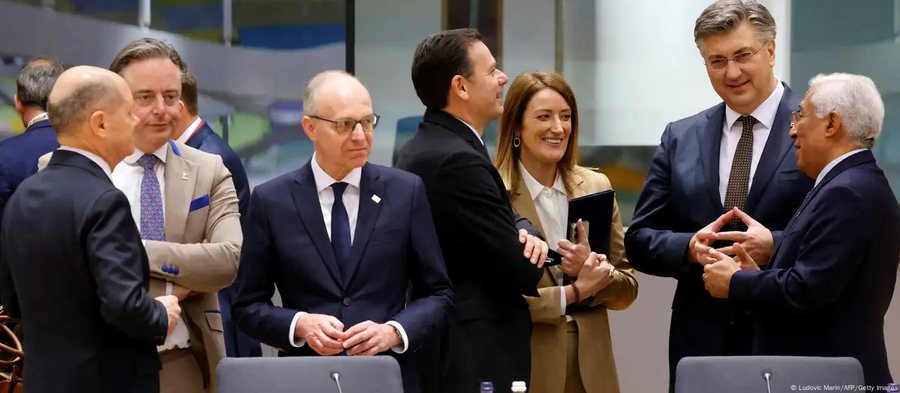
Europe's defense readiness must be massively increased. This was the decision of the EU summit. But on Ukraine the EU does not have a common position. Aid was promised without concrete commitments.
The European Union is set to significantly increase its weapons arsenal over the next five years. At an EU summit in Brussels, the heads of state and government of the member states agreed to do everything possible to significantly strengthen Europe's defense capabilities. The EU plans to invest up to 800 billion euros in defense by 2030. The President of the EU Commission, Ursula von der Leyen, wants to create, among other things, "a new European financial instrument" that provides loans for a total of 150 billion euros. There are also plans to ease regulations and relax requirements on the arms industry.
The reason for these plans is the threat from Russia. According to the European Commission, the EU must immediately prepare for the possibility of a large-scale war with Russia. The situation is considered particularly dangerous due to the announcements made by US President Donald Trump, who has declared that the nuclear superpower USA will no longer be available unconditionally as a guarantor of peace in Europe.
One against 26 in Ukraine policy
Ukrainian President Volodymyr Zelensky, who was connected by video, called on the EU not to abandon its support for his country. Specifically, he asked for at least five billion euros for artillery shells. But the EU did not immediately promise new, large-scale aid to Ukraine.
Zelensky's appeal was based on an initiative by EU foreign policy chief Kaia Kallas, who at the start of the Brussels meeting, again called for an appropriate amount to be made available for the delivery of ammunition to the Ukrainian armed forces.
Hungarian Prime Minister Viktor Orban said at the summit that he would not accept any new EU decision in favor of Ukraine. As at the special summit on March 6, due to Orban's veto, a joint EU statement failed to be adopted. The leaders of the 26 other member states later reaffirmed in a statement, without Orban, that they continue to unconditionally support "the independence, sovereignty and territorial integrity of Ukraine within its internationally recognized borders."
Different perspectives
In Brussels, it also became clear that the geographical position leads to a different view between Eastern and Southern European countries regarding Ukraine. The Prime Minister of Finland, Petteri Orpo, and the President of Lithuania, Gitanas Nauseda, called for Ukraine to become an EU member before 2030.
Spain, however, sees other priorities: "It is important to take into account that the challenges we face in the southern countries are somewhat different from those faced by the eastern flank of the EU," warned Spanish Prime Minister Pedro Sanchez. For him, strengthening border controls and the fight against terrorism are more of a priority. /DW/ (A2 Televizion)











